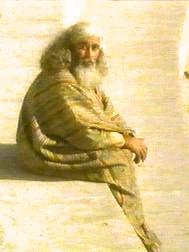![SotT-LargeLogo-GarethRH]()
When we kicked off the “State of the Tentacle” series, one of the goals was to cast a net further than just Call of Cthulhu and to try to get some opionions from folks in the broader “Lovecraftian RPG” field. With this fourth installment we have certainly succeeded in this endeavour … for trapped in the bottom of our net (trying desperately to swim back to the nearest Deep One metropolis) we find Gareth Ryder-Hanrahan.
Lovecraftian gamers will certainly know Gareth from his recent work as the “Laundry Guy” and for Trail of Cthulhu. But for gamers who are a little longer in the tooth (or is that tentacle?) his name will certainly be also recognizable as the “Paranoia reboot” guy and the “new Traveller edition” guy and many other epithets besides. All this experience — both inside and outside our little corner of the gaming universe — makes him an interesting person to quiz about the future of Lovecraftian games, so we are really happy that our net held true and we were able to compel some interesting answers from Gareth in exchange for his liberty.
Introduction
Gareth is a writer and game designer based in Ireland. While innocently starting out writing Cthulhu scenarios (irishgaming.com) for conventions, he wandered into a career in gaming by accident. These days, he is a line manager at Cubicle 7 (for The Laundry and other properties) and a freelancer for other companies, notably Pelgrane Press.
![Hanrahan-collectedworks]()
Gareth has worked on all the Laundry Files books -- that’s The Laundry Files Core Rulebook, the excellent Laundry scenario compendium Black Bag Jobs, The Laundry Agent’s Handbook, License to Summon, Mythos Dossiers, GOD GAME BLACK and the yet-to-be-released Cultists Under The Bed for those keeping score. He’s also written Arkham Detective Tales and has taken over responsibilities in writing the latter chapters of the much-loved Cthulhu Apocalypse campaign for Pelgrane Press. Gareth also contributed to the Maelstrom anthology of Mythos fiction and to the marginalia for Graham Walmsley’s insanely useful Stealing Cthulhu guide to building Lovecraftian tales by … well, er, stealing.
And all this in the last couple of years. Clearly Gareth is either a man who believes sleep is for the weak, some form of military AI experiment, or a Beowulf cluster of Mi-go brain cylinders. Even after interviewing him, we’re not really sure which.
![]()
![Clear Divider 700x10]()
Outside the Mythos, Gareth is also famous for having written new editions of Traveller and Paranoia for Mongoose Publishing (and is proud of the fact that he added the “Servants of Cthulhu” as a secret society in Paranoia: Internal Security), He has also contributed to many, many more game lines than we could possibly mention here, written a licensed novel (Paranoia: Reality Optional) and is currently working on a FATE-powered game of lurid Georgian-era occult horror called Rakehell as well as many, many other things.
![Rakehell-THL-700]()
Gareth blog (infrequently) at www.milkyfish.com, but can be found more regularly on twitter and other forums, where he usually goes by the name “mytholder”.
CthulhuReborn: With over three decades of history to Lovecraftian Roleplaying, what do you see as the key milestones and mis-steps that have been made during its evolution?
Gareth: Lovecraft bestrides the gaming world like some shambling colossus. There are few genres or types of game that don’t have at least a nod in the direction of ancient tentacled horrors. Not just roleplaying games – I’ve got shelves full of Lovecraftian board games, card games, computer games… plush toys, even. Lovecraft’s a geek shibboleth.
(Of course, calling most of these ‘Lovecraftian’ is arguable a misnomer. If you say ‘Mythos’ roleplaying, you’re on safer ground. A lot of games don’t capture Lovecraft’s artful dread, but have the tropes of tentacled monsters, musty books and madmen down pat.)
![]() The key milestones have to include the publication of Call of Cthulhu, of course, but I think the Deities and Demigods printing of the Mythos gods was also very important, as it seeded the idea that Lovecraft could be added to any game, instead of just being restricted to a single setting. Did that primordial miscegenation open up Lovecraftian horror to strange new vistas of gaming?
The key milestones have to include the publication of Call of Cthulhu, of course, but I think the Deities and Demigods printing of the Mythos gods was also very important, as it seeded the idea that Lovecraft could be added to any game, instead of just being restricted to a single setting. Did that primordial miscegenation open up Lovecraftian horror to strange new vistas of gaming?
Given the huge success of Lovecraftian roleplaying, pointing out missteps feels like nitpicking. “Lovecraftian roleplaying has been a pillar of gaming for decades, hugely well-respected with a sturdy ruleset that’s hardly dated, a host of fans and a reputation for immensely rewarding play – where did it all go wrong?”
If I must answer – the game never really embraced one-shots as much as it should have, the character generation rules are… quaint, but notoriously time-consuming given how quickly investigators can perish, and there’s been a paucity of good advice for Keepers on how to keep a campaign going.
![]()
I worry about some of what I’ve heard about the 7th edition rules. Updating a classic ruleset like that is a very, very tricky job – look at the current debates over the direction of Dungeons and Dragons, for example. I worked on a new edition of Traveller a few years ago, and that was a harrowing experience. I feel you have to see yourself as a custodian of the game, not an architect – make tweaks rather than large-scale changes unless you can clearly identify sections that need improvement. It’s doubly hard with CoC, as the basic engine is so transparent and simple. “Here’s your skill, roll under it” is hard to improve upon.
CR: Given the many and varied publishers and product lines that exist in 2013 to support the hobby, what things do you think this “mini-industry” is doing well and what could be done better?
![]() Gareth: The glib answer is “it’s doing well by surviving” in this grim times. The various publishers all seem to be ploughing their own fields quite nicely. Even if you restrict it to BRP-compatible material, everyone’s got their Unique Selling Point – hard-edged modern-day black-helicopter stuff in Delta Green, Lovecraft-country at Miskatonic River Press, 1920s England at Cthulhu Britanica and so on.
Gareth: The glib answer is “it’s doing well by surviving” in this grim times. The various publishers all seem to be ploughing their own fields quite nicely. Even if you restrict it to BRP-compatible material, everyone’s got their Unique Selling Point – hard-edged modern-day black-helicopter stuff in Delta Green, Lovecraft-country at Miskatonic River Press, 1920s England at Cthulhu Britanica and so on.
![]() We do need more innovation. More player-facing books, for example. Robin Laws’ Armitage Files suggests a fantastic way of presenting investigative adventures, and I’d love to see something like that applied to classic Cthulhu. The big challenges in roleplaying writing are structuring information so it can be referenced quickly in play while still being clear and entertaining, and harnessing the creativity and enthusiasm of the players while still preserving a meaningful investigation.
We do need more innovation. More player-facing books, for example. Robin Laws’ Armitage Files suggests a fantastic way of presenting investigative adventures, and I’d love to see something like that applied to classic Cthulhu. The big challenges in roleplaying writing are structuring information so it can be referenced quickly in play while still being clear and entertaining, and harnessing the creativity and enthusiasm of the players while still preserving a meaningful investigation.
CR: What do you see as the main factors shaping the direction of Lovecraftian RPGs right now?
Gareth: There’s the X + Cthulhu approach, adding the Mythos to different settings or genres. Cthulhu plus space, Cthulhu plus mecha, Cthulhu plus spies, Cthulhu plus WWII, Cthulhu plus Regency England. The right combination can, I think, spark something wonderful – if you can find unexpected and fruitful resonances between the Mythos and your chosen X, it makes for great gaming. It’s also possible to come up with new and interesting perspectives on the Mythos – look at John Snead’s Eldritch Skies, which recasts the Mythos races as aliens to be encountered and explored, as opposed to fundamentally incomprehensible horrors.
![Eldritch Skies]()
The downside is that it can be all too easy to rely on Mythos tropes to provide the bad guys for your setting, which can result in retelling The Shadow Over Innsmouth over and over, only the bad guys have different hats. Any worthwhile combination should bring something new to the Mythos. (I was very pleased when reviews of the Black Bag Jobs anthology for the Laundry observed that it would be hard to adapt those adventures for a regular Cthulhu campaign, as they were so tied to the Laundry setting while still using classic Mythos concepts like Deep Ones or cultists.)
There’s also Kickstarter, which may have a big influence on the direction of games, but I’ll get to that later on.
CR: What do you see as the main challenges currently facing the continued prosperity/growth of the hobby?
Gareth: I note the distinction between ‘prosperity’ and ‘growth’. I’ll also draw a distinction between ‘hobby’ and ‘industry’.
The industry’s gotten very good at surviving and even prospering on small margins. The average book sells far fewer copies than a comparable release a decade ago, but there are more books, and they’re more efficiently produced. The industry will continue to prosper, within its own little niche, possibly becoming every more indistinguishable from ‘hobby’. I think the games and adventures coming out these days are richer and better-designed than any before, and there’s more analysis, discussion and refinement going on than ever before, thanks to the Internet.
![]()
Growth, though, is harder to achieve. One of the biggest obstacles for roleplaying games is time. I may get a deeper and more interesting experience out of a D&D campaign with six friends than I do out of popping Skyrim into my Xbox – but the latter takes only ten seconds, as opposed to the hours of wrangling, scheduling, postponement and logistical issues needed to get seven busy people into the same room for four hours. Gaming requires a huge investment of time, and that’s a big obstacle for new players.
![]() Call of Cthulhu and its ilk actually do moderately well on this score. The Cthulhu character generation rules are rather slow, but the rules can be explained in a few seconds. There’s a wealth of scenarios available for busy Keepers, and Cthulhu lends itself very well to the one-shot game or a campaign where you can drop in pre-written scenarios.
Call of Cthulhu and its ilk actually do moderately well on this score. The Cthulhu character generation rules are rather slow, but the rules can be explained in a few seconds. There’s a wealth of scenarios available for busy Keepers, and Cthulhu lends itself very well to the one-shot game or a campaign where you can drop in pre-written scenarios.
I’d love to see something with the visuals and props of, say, Arkham Horror but with the structure and interactivity of a roleplaying game…but we’re crossing over into opportunities here. So, one of the obstacles is the lack of an appealing entry-level game, and one of the opportunities is the production of an appealing entry-level game!
CR: If it was up to you, where would you like to see the product lines of Lovecraftian RPGs (whether it’s the games themselves or their support products) go next?
Gareth: Well, one corner of our quaint, witch-haunted town is under my tyrannical reign – I’m line manager for the Laundry Files, the game based on the novels of Charles Stross. While the novels determine the overall trajectory of the line (towards CASE NIGHTMARE GREEN [the Laundryverse name for the imminent catastrophe "when the stars come right" --CR]), we get to explore other aspects of the setting, and that normally involves adding a little more Mythos. This year, we’re working on a guide to the military and political aspects of the Laundryverse, another adventure anthology, and a guide to cults called Cultists Under The Bed, which uses a similar format to the Mythos Dossiers with lots of player handouts.
![]() Other lines I wouldn’t want to dictate, save perhaps to hurry them along (Eternal Lies, for example, is something I’d really like to run at some point). There are lots of very strong designers working in the shadow of Lovecraft.
Other lines I wouldn’t want to dictate, save perhaps to hurry them along (Eternal Lies, for example, is something I’d really like to run at some point). There are lots of very strong designers working in the shadow of Lovecraft.
I’d love to see something that’s really quick to pick up and play, while still keeping all the strengths of a roleplaying game. Cthulhu Dark or Tremulus might come close.
CR: Hypothetically, if you were to gaze into a crystal ball and look five years into the future of the hobby, what do you expect you’d see had changed in that time?
![ipad-art-deco-coc-sheet]() Gareth: There’ll be more integration of electronic media and support. The balance of the industry is shifting towards PDFs. These days, if I buy a new game to read, I’ll buy it in PDF, and only get a print version if I want to actually play it. You still can’t beat print for ease of use at a gaming table (at least, not yet — playing “the five year future of consumer electronics, especially tablets” is a whole other blog post). There’ll also be more use of character trackers, virtual handouts, and so on, especially for games set in the modern era.
Gareth: There’ll be more integration of electronic media and support. The balance of the industry is shifting towards PDFs. These days, if I buy a new game to read, I’ll buy it in PDF, and only get a print version if I want to actually play it. You still can’t beat print for ease of use at a gaming table (at least, not yet — playing “the five year future of consumer electronics, especially tablets” is a whole other blog post). There’ll also be more use of character trackers, virtual handouts, and so on, especially for games set in the modern era.
Right now, Kickstarter’s exerting a huge gravitational pull over the industry. Bigger companies like WotC have enough financial mass to ignore it, but it’s virtually irresistible for smaller companies and hobbyist publishers. The lure of a enthused, connected, invested fanbase PLUS money up front PLUS a financing system that rewards clever ideas and gaming the system… that’s very attractive.
There are three ways this can go.
![sott - Kickstarter Growth Tentacles]() Firstly, the kickstarter bubble might just burst. If a number of high-profile projects don’t deliver, then people may decide that investing money in a game that might never materialise just isn’t worth the risk. A badly managed successful Kickstarter can be much worse than a failed project.
Firstly, the kickstarter bubble might just burst. If a number of high-profile projects don’t deliver, then people may decide that investing money in a game that might never materialise just isn’t worth the risk. A badly managed successful Kickstarter can be much worse than a failed project.
In this scenario, the landscape looks much as it does now. Some product lines will have closed down, others opened up, but I wouldn’t expect any large-scale changes.
Secondly, Kickstart might just tick along, in which case it effectively becomes a pre-order/market testing system. Someone has an idea for a book, up it goes on Kickstarter, and if it funds, it gets published. It gives companies cash flow and lets them avoid sinking thousands into a book that no-one wants. Everyone wins, especially publishers with good track records.
![]()
Scenario three is that we keep getting these huge spikes of funding for high-profile projects with thousands of backers. That would open the door to a scenario where there are fewer but much bigger and more impressive products instead of a steady stream of books.
The Kickstarter phenomenon is especially relevant to Mythos gaming, because… well, Cthulhu’s popular and instantly recognisable. We’re a meme.
CR: A meme indeed … Thanks for your time, Gareth!
![]()
![]()
![]()
 Its a big day for those of us here at Cthulhu Reborn … our first-ever commercial PDF product (Mutable Deceptions, Volume 1 – Jazz Age Newspapers) has just been released. It’s available for sale at both the RPGNow and DrivethruRPG online stores.
Its a big day for those of us here at Cthulhu Reborn … our first-ever commercial PDF product (Mutable Deceptions, Volume 1 – Jazz Age Newspapers) has just been released. It’s available for sale at both the RPGNow and DrivethruRPG online stores.







 Dan Harms, noted expert on the Cthulhu Mythos and in particular the dread Necronomicon, has one unique characteristic possessed by no other authority interviewed to date on this blog: he is dead. Well, at least if that most esteemed academic source known as UseNet is to be believed. For, in a most grave and solemn press release issued on 18 August 2001 beneath the byline
Dan Harms, noted expert on the Cthulhu Mythos and in particular the dread Necronomicon, has one unique characteristic possessed by no other authority interviewed to date on this blog: he is dead. Well, at least if that most esteemed academic source known as UseNet is to be believed. For, in a most grave and solemn press release issued on 18 August 2001 beneath the byline 
 Dan: Milestones: The creation of Call of Cthulhu itself, the
Dan: Milestones: The creation of Call of Cthulhu itself, the  I think that our biggest challenge is to stop confusing the creation of new settings, or mashing up Lovecraft with another genre, with innovation. Much of what I’m seeing seems to spring from someone saying, “Boy, wouldn’t it be fun to play a game/scenario set on a remote geographical location, or in an alternate future, or with mechs!” Those games can be fun, but they don’t try anything different, and I’m not sure how much interest they inspire after the novelty factor has worn off.
I think that our biggest challenge is to stop confusing the creation of new settings, or mashing up Lovecraft with another genre, with innovation. Much of what I’m seeing seems to spring from someone saying, “Boy, wouldn’t it be fun to play a game/scenario set on a remote geographical location, or in an alternate future, or with mechs!” Those games can be fun, but they don’t try anything different, and I’m not sure how much interest they inspire after the novelty factor has worn off.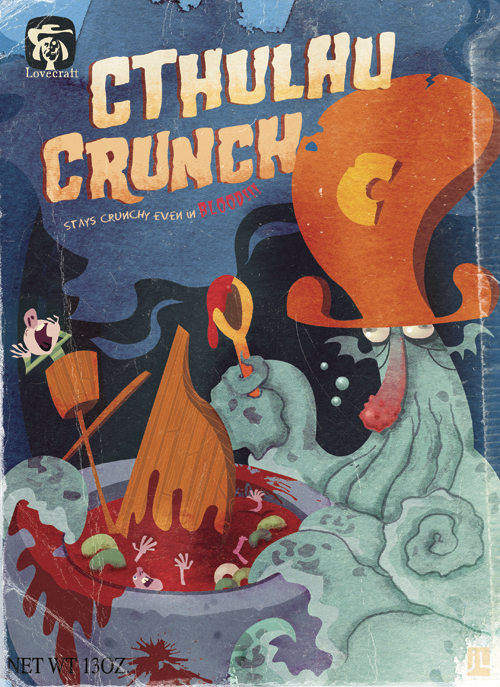







 The key milestones have to include the publication of Call of Cthulhu, of course, but I think the
The key milestones have to include the publication of Call of Cthulhu, of course, but I think the 
 Gareth: The glib answer is “it’s doing well by surviving” in this grim times. The various publishers all seem to be ploughing their own fields quite nicely. Even if you restrict it to BRP-compatible material, everyone’s got their Unique Selling Point – hard-edged modern-day black-helicopter stuff in
Gareth: The glib answer is “it’s doing well by surviving” in this grim times. The various publishers all seem to be ploughing their own fields quite nicely. Even if you restrict it to BRP-compatible material, everyone’s got their Unique Selling Point – hard-edged modern-day black-helicopter stuff in  We do need more innovation. More player-facing books, for example. Robin Laws’ Armitage Files suggests a fantastic way of presenting investigative adventures, and I’d love to see something like that applied to classic Cthulhu. The big challenges in roleplaying writing are structuring information so it can be referenced quickly in play while still being clear and entertaining, and harnessing the creativity and enthusiasm of the players while still preserving a meaningful investigation.
We do need more innovation. More player-facing books, for example. Robin Laws’ Armitage Files suggests a fantastic way of presenting investigative adventures, and I’d love to see something like that applied to classic Cthulhu. The big challenges in roleplaying writing are structuring information so it can be referenced quickly in play while still being clear and entertaining, and harnessing the creativity and enthusiasm of the players while still preserving a meaningful investigation.
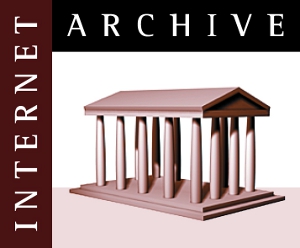
 Call of Cthulhu and its ilk actually do moderately well on this score. The Cthulhu character generation rules are rather slow, but the rules can be explained in a few seconds. There’s a
Call of Cthulhu and its ilk actually do moderately well on this score. The Cthulhu character generation rules are rather slow, but the rules can be explained in a few seconds. There’s a  Other lines I wouldn’t want to dictate, save perhaps to hurry them along (
Other lines I wouldn’t want to dictate, save perhaps to hurry them along (













 When I got back into gaming, I was most interested in smaller games. So I liked Malcolm Craig’s
When I got back into gaming, I was most interested in smaller games. So I liked Malcolm Craig’s 
 I think that was important. It gave the idea that Cthulhu games needn’t be about shooting cultists: they could be about incomphrensible, insoluble horror.
I think that was important. It gave the idea that Cthulhu games needn’t be about shooting cultists: they could be about incomphrensible, insoluble horror.


 So where does that leave the bigger companies? In some ways, they’re getting more innovative. Pelgrane Press are working with individual writers to produce a range of strange and creative scenarios (Jason Morningstar’s
So where does that leave the bigger companies? In some ways, they’re getting more innovative. Pelgrane Press are working with individual writers to produce a range of strange and creative scenarios (Jason Morningstar’s 
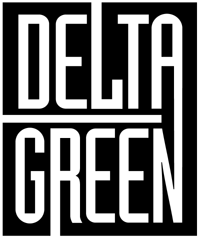 Delta Green: I’m looking forward to the new edition. For me, the most exciting thing about Delta Green is that it’s a military setting. I’d like them to use more military history, with stories from soldiers and support staff we haven’t heard before.
Delta Green: I’m looking forward to the new edition. For me, the most exciting thing about Delta Green is that it’s a military setting. I’d like them to use more military history, with stories from soldiers and support staff we haven’t heard before.




 Stuart: My intention with writing Shadows Over Scotland was always to write the book ‘for Keepers’ — that is, to write for an audience that is looking to acquire and make use of detailed, informative, and evocative source material, but who also want to be entertained in the process. These days it is easy enough to dial up information on people, places, events, etc. in Wikipedia or the like, so I personally don’t think it is enough for sourcebooks to be mere repositories of information. That said, a lot of sourcebooks I own and have read are written solely to disseminate information and care little for engaging readers. When the opportunity to write Shadows came up, I planned from the beginning to write a book that had the material (e.g. histories, events, local knowledge, etc.), but that would situate it within a larger story (that of a Mythos-infused Scotland in the 1920s) and emphasise atmosphere and drama over sheer quantity of information. So, from the get-go, I was very conscious of writing a book that would be entertaining, and hopefully inspirational, for Keepers.
Stuart: My intention with writing Shadows Over Scotland was always to write the book ‘for Keepers’ — that is, to write for an audience that is looking to acquire and make use of detailed, informative, and evocative source material, but who also want to be entertained in the process. These days it is easy enough to dial up information on people, places, events, etc. in Wikipedia or the like, so I personally don’t think it is enough for sourcebooks to be mere repositories of information. That said, a lot of sourcebooks I own and have read are written solely to disseminate information and care little for engaging readers. When the opportunity to write Shadows came up, I planned from the beginning to write a book that had the material (e.g. histories, events, local knowledge, etc.), but that would situate it within a larger story (that of a Mythos-infused Scotland in the 1920s) and emphasise atmosphere and drama over sheer quantity of information. So, from the get-go, I was very conscious of writing a book that would be entertaining, and hopefully inspirational, for Keepers.




 Oscar Rios is an author of horror fiction and role playing scenarios for the Call of Cthulhu RPG. Since 2002 he has written sixty three (and counting) Call of Cthulhu scenarios, and has written for nearly every historical era possible. He’s written five monographs for Chaosium, including
Oscar Rios is an author of horror fiction and role playing scenarios for the Call of Cthulhu RPG. Since 2002 he has written sixty three (and counting) Call of Cthulhu scenarios, and has written for nearly every historical era possible. He’s written five monographs for Chaosium, including  Oscar began working for Miskatonic River Press, as a staff writer and editor. His scenarios appear in MRP’s offerings
Oscar began working for Miskatonic River Press, as a staff writer and editor. His scenarios appear in MRP’s offerings  On the strength of his unassailable reputation as a writer of excellent Invictus-era adventures for Call of Cthulhu, he was recently invited to become the first “new face” to join the team writing additional material for Chaosium’s 2nd edition of the classic campaign,
On the strength of his unassailable reputation as a writer of excellent Invictus-era adventures for Call of Cthulhu, he was recently invited to become the first “new face” to join the team writing additional material for Chaosium’s 2nd edition of the classic campaign, 
 Another milestone would have to be the publication of the epic campaigns, such as
Another milestone would have to be the publication of the epic campaigns, such as 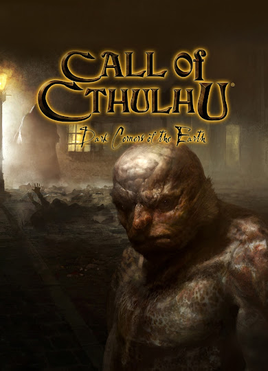
 What could all these companies do better? Well, they could put out more products. When a fan hears about a great book, sees an amazing cover, and gets all excited that the product will be out in four months everything is cool. When a year or two goes by and that book still isn’t out that fan is no longer excited. They might not even be interested anymore. Hell, it’s possible they don’t even remember the project or if they do their angry about it. Some of these have become almost Urban Legends within the Call of Cthulhu RPG. Want to start a heated discussion among a group of CoC players, just say “Hey,
What could all these companies do better? Well, they could put out more products. When a fan hears about a great book, sees an amazing cover, and gets all excited that the product will be out in four months everything is cool. When a year or two goes by and that book still isn’t out that fan is no longer excited. They might not even be interested anymore. Hell, it’s possible they don’t even remember the project or if they do their angry about it. Some of these have become almost Urban Legends within the Call of Cthulhu RPG. Want to start a heated discussion among a group of CoC players, just say “Hey, 








 Dan: When I say the monograph line is a “mis-step,” mind you, I’m basing it on what monographs I have read, the reactions I’ve heard to the others, and my creative philosophy. Maybe they make a good amount of money, and if so they’re a success from a business perspective.
Dan: When I say the monograph line is a “mis-step,” mind you, I’m basing it on what monographs I have read, the reactions I’ve heard to the others, and my creative philosophy. Maybe they make a good amount of money, and if so they’re a success from a business perspective. To me, the place for a monograph series is between what you believe in and what can be marketed. For example, someone could write a wonderful Gaslight sourcebook for Buffalo, New York. No matter how great it is, it’ll always be a product appealing to a very small niche, which makes it suitable as a small-scale Print On Demand book rather than a general release. If the sales reveal some interest, then the book can be expanded and published on a broader scale.
To me, the place for a monograph series is between what you believe in and what can be marketed. For example, someone could write a wonderful Gaslight sourcebook for Buffalo, New York. No matter how great it is, it’ll always be a product appealing to a very small niche, which makes it suitable as a small-scale Print On Demand book rather than a general release. If the sales reveal some interest, then the book can be expanded and published on a broader scale. Dan: I think to work with Lovecraft, you have to get back to his writing and accept its viewpoint as a baseline. That means getting beyond the trappings and asking what the story says about the universe itself. For example, Pathfinder includes Mythos creatures among its monsters. Fighting them is probably fun, but their presence doesn’t equate to a Lovecraftian game.
Dan: I think to work with Lovecraft, you have to get back to his writing and accept its viewpoint as a baseline. That means getting beyond the trappings and asking what the story says about the universe itself. For example, Pathfinder includes Mythos creatures among its monsters. Fighting them is probably fun, but their presence doesn’t equate to a Lovecraftian game. Does that mean we’re committed to rehashing Lovecraft again and again? Certainly not. The next question is how the genre, or the characters within it, act within that setting. Both
Does that mean we’re committed to rehashing Lovecraft again and again? Certainly not. The next question is how the genre, or the characters within it, act within that setting. Both 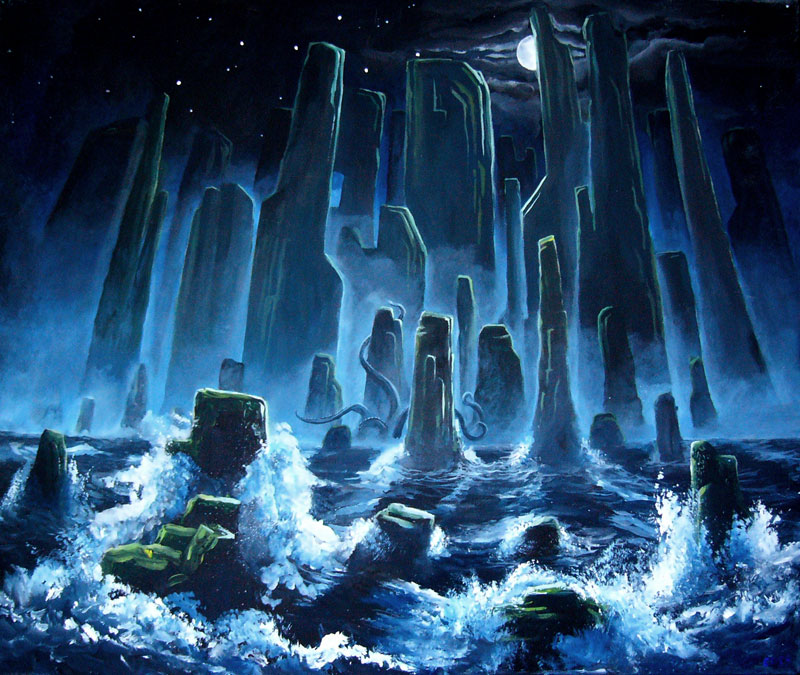
 If you want to get a good idea of how I think tomes should be treated in games, I’d suggest picking up
If you want to get a good idea of how I think tomes should be treated in games, I’d suggest picking up 







 Cynthia: It’s an exciting time right now, because more Lovecraftian games are hitting the market than ever before. Much of this stems from the fact that HPL’s work is becoming increasingly well known in popular media, creating more of a demand for such products.
Cynthia: It’s an exciting time right now, because more Lovecraftian games are hitting the market than ever before. Much of this stems from the fact that HPL’s work is becoming increasingly well known in popular media, creating more of a demand for such products.





 But the difficult part is finding an audience. What you must do, here, is engage with people: go to conventions, run your scenarios for people, get them excited about your stuff. Until you’ve got that excitement, you’re sunk.
But the difficult part is finding an audience. What you must do, here, is engage with people: go to conventions, run your scenarios for people, get them excited about your stuff. Until you’ve got that excitement, you’re sunk.





 Although I differed with many of Monte Cook’s specific decisions, his d20 Call of Cthulhu rules did about as well as anything could to bolt level-and-XP gaming onto the Mythos, and opened up a lot of possibilities in quasi-Mythos settings like Freeport and the Scarred Lands. Geoffrey McKinney’s
Although I differed with many of Monte Cook’s specific decisions, his d20 Call of Cthulhu rules did about as well as anything could to bolt level-and-XP gaming onto the Mythos, and opened up a lot of possibilities in quasi-Mythos settings like Freeport and the Scarred Lands. Geoffrey McKinney’s  I’m a little surprised that there hasn’t been an A-list designer in the new generation try a Lovecraftian story game from the ground up: I’m talking Luke Crane, Vincent Baker, Paul Czege, Emily Care Boss or someone of their calibre and vintage. (Ron Edwards did a terrific “Northwest Smith” RPG in
I’m a little surprised that there hasn’t been an A-list designer in the new generation try a Lovecraftian story game from the ground up: I’m talking Luke Crane, Vincent Baker, Paul Czege, Emily Care Boss or someone of their calibre and vintage. (Ron Edwards did a terrific “Northwest Smith” RPG in 
 I should emphasize that my work on Trail of Cthulhu partakes of both those conservative flavors: I’m developing books I always wanted Chaosium to do (Bibliophile Cthulhu! Thirties Cthulhu!), using Robin’s GUMSHOE rules set. To the extent that “the mini-industry” is holding back, so am I. And I hope that example indicates that, like Lovecraft, I don’t see anything wrong with conservatism in design! Jason Durall and Gareth Hanrahan’s
I should emphasize that my work on Trail of Cthulhu partakes of both those conservative flavors: I’m developing books I always wanted Chaosium to do (Bibliophile Cthulhu! Thirties Cthulhu!), using Robin’s GUMSHOE rules set. To the extent that “the mini-industry” is holding back, so am I. And I hope that example indicates that, like Lovecraft, I don’t see anything wrong with conservatism in design! Jason Durall and Gareth Hanrahan’s 

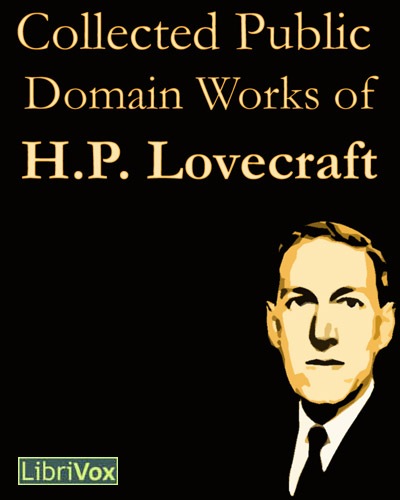 The other potential big obstacle in the road would be someone with deeper pockets closing off Cthulhu at the tap. While H.P. Lovecraft’s work is public domain, there’s enough shadows and fog there that a Disney or Time Warner (or even a farcical “Lovecraft estate”) could make it impossible to publish Cthulhu mythos work. Trademark abuse could strangle us – the core tales of Edgar Rice Burroughs and Robert E. Howard are both clearly in the public domain, but just try to market something with the word “Tarzan” or “Conan” in the title and see how far you get. Right now, someone is suing the Conan Doyle estate over their claim of exclusive rights to a character invented in 1886! Multinational IP law reform is clearly needed, and is just as clearly not happening any time soon.
The other potential big obstacle in the road would be someone with deeper pockets closing off Cthulhu at the tap. While H.P. Lovecraft’s work is public domain, there’s enough shadows and fog there that a Disney or Time Warner (or even a farcical “Lovecraft estate”) could make it impossible to publish Cthulhu mythos work. Trademark abuse could strangle us – the core tales of Edgar Rice Burroughs and Robert E. Howard are both clearly in the public domain, but just try to market something with the word “Tarzan” or “Conan” in the title and see how far you get. Right now, someone is suing the Conan Doyle estate over their claim of exclusive rights to a character invented in 1886! Multinational IP law reform is clearly needed, and is just as clearly not happening any time soon.







 Gareth: Pregenerated or partially pregenerated characters are an easy solution. Have a set of Lovecraftian investigator archetypes – the Antiquarian, the Private Detective, the Dilettante and so on – with most of their stats and skills precalculated. Let the player spend a few points on skills to customise the character, maybe have a bunch of background hooks and character quirks to pick from, and off you go.
Gareth: Pregenerated or partially pregenerated characters are an easy solution. Have a set of Lovecraftian investigator archetypes – the Antiquarian, the Private Detective, the Dilettante and so on – with most of their stats and skills precalculated. Let the player spend a few points on skills to customise the character, maybe have a bunch of background hooks and character quirks to pick from, and off you go.



 Scott is a collector of jack o’lanterns and bigfoot movies, and works extensively to restore his old Colonial home (“The House of Secrets”) to its former original period splendour. Scott’s blog, “Whispers from the House of Secrets,” where he blathers on about writing, rails against the mundane world, waxes nostalgic and otherwise makes noise can be found at:
Scott is a collector of jack o’lanterns and bigfoot movies, and works extensively to restore his old Colonial home (“The House of Secrets”) to its former original period splendour. Scott’s blog, “Whispers from the House of Secrets,” where he blathers on about writing, rails against the mundane world, waxes nostalgic and otherwise makes noise can be found at:  [indeed "Convergence", the scenario which introduced the idea of Delta Green was published in
[indeed "Convergence", the scenario which introduced the idea of Delta Green was published in 
 I think the late Keith Herber’s
I think the late Keith Herber’s  I think the best way to do something like that is to release your new setting book and immediately follow it up with a book of scenarios. If that proves successful follow it with a campaign and perhaps a companion to gather and add new rules, occupations, monsters, villains, etc. to the particular setting. Chaosium, for example, has never really done much to support either the Dreamlands setting (although ironically, that book has been reprinted a number of times and had several updated editions) or their Gaslight era book (or Invictus or Dark Ages….). Fellow-dinosaur and Elder Statesman of CoC, Kevin Ross wrote, assembled and edited a series of Colonial America CoC setting books (and a Western CoC line, incidentally) for a licensee which includes the
I think the best way to do something like that is to release your new setting book and immediately follow it up with a book of scenarios. If that proves successful follow it with a campaign and perhaps a companion to gather and add new rules, occupations, monsters, villains, etc. to the particular setting. Chaosium, for example, has never really done much to support either the Dreamlands setting (although ironically, that book has been reprinted a number of times and had several updated editions) or their Gaslight era book (or Invictus or Dark Ages….). Fellow-dinosaur and Elder Statesman of CoC, Kevin Ross wrote, assembled and edited a series of Colonial America CoC setting books (and a Western CoC line, incidentally) for a licensee which includes the 
 Where in the 1970’s and 1980’s finding Lovecraftian/Mythos material was like a glorious and elusive treasure hunt, today one just has to browse through the local comic or book shop to find numerous mentions of HPL and his cosmic sprattlings. And the explosive bloom of Mythos anthologies, collections and novels is mind-numbing; I clearly remember a time not so very long ago when most book and magazine submission guidelines specifically said “NO LOVECRAFT/CTHULHU STORIES.” The day was when you would mention “Lovecraft” or “Cthulhu” and people would look at you oddly and you would grin knowingly, but now you can’t swing a cat without hitting some self-proclaimed Lovecraft fan (or worse, “Lovecraft scholar”) or Mythos aficionado. It’s crazy! And not in the good, drooling from mind-blasted insanity way! Maybe I’m just an old curmudgeon unhappy that his special little private club has opened its doors to the public? It just seems that the wider the popularity spreads the more watered down and inane the whole thing gets.
Where in the 1970’s and 1980’s finding Lovecraftian/Mythos material was like a glorious and elusive treasure hunt, today one just has to browse through the local comic or book shop to find numerous mentions of HPL and his cosmic sprattlings. And the explosive bloom of Mythos anthologies, collections and novels is mind-numbing; I clearly remember a time not so very long ago when most book and magazine submission guidelines specifically said “NO LOVECRAFT/CTHULHU STORIES.” The day was when you would mention “Lovecraft” or “Cthulhu” and people would look at you oddly and you would grin knowingly, but now you can’t swing a cat without hitting some self-proclaimed Lovecraft fan (or worse, “Lovecraft scholar”) or Mythos aficionado. It’s crazy! And not in the good, drooling from mind-blasted insanity way! Maybe I’m just an old curmudgeon unhappy that his special little private club has opened its doors to the public? It just seems that the wider the popularity spreads the more watered down and inane the whole thing gets. So, with the newfound popularity of all things Lovecraft comes a melding of modern ideas and technology into the Mythos, and we’re seeing
So, with the newfound popularity of all things Lovecraft comes a melding of modern ideas and technology into the Mythos, and we’re seeing 
 Scott: As I mentioned elsewhere, I think product lines should be developed and supported. I would love to see more
Scott: As I mentioned elsewhere, I think product lines should be developed and supported. I would love to see more 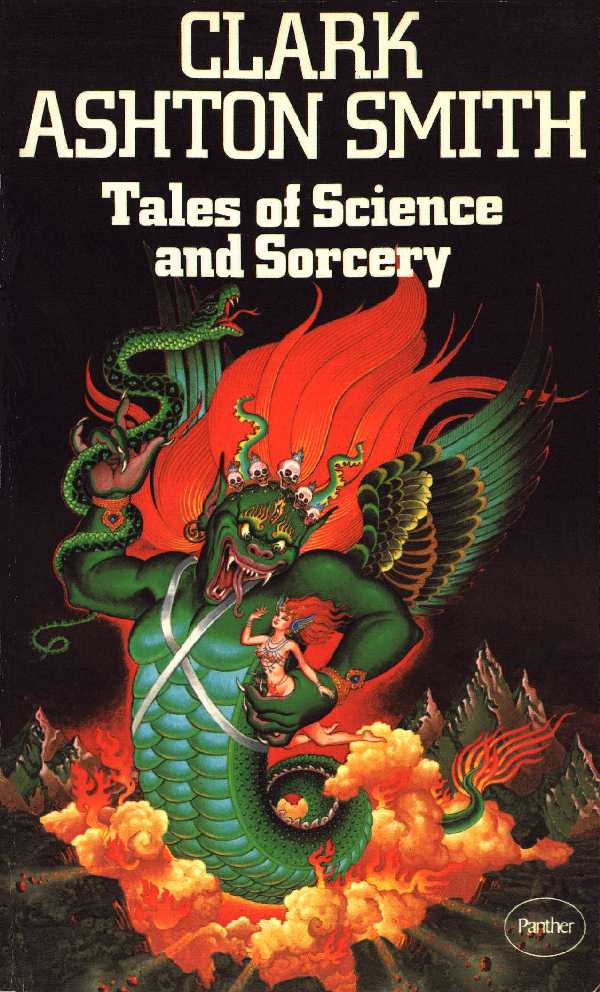 Something I would also love to see (and to be a part of) would be CoC source material for other author’s worlds.
Something I would also love to see (and to be a part of) would be CoC source material for other author’s worlds. 
 Scott: The hobby itself I expect to have shrunken in five years. It’s a sad truth that as technology advances table top RPGs just aren’t as popular as computer and video games. Dead tree publishing in general is not in the best of health: “print is dead” and all of that twaddle. As for CoC, unless someone does something monumentally stupid or there’s some cataclysmic shake-up, I don’t see as it will be much different than it is today. The game has survived pretty much unchanged since 1981, so barring a tragically radical new edition, I don’t foresee any great changes.
Scott: The hobby itself I expect to have shrunken in five years. It’s a sad truth that as technology advances table top RPGs just aren’t as popular as computer and video games. Dead tree publishing in general is not in the best of health: “print is dead” and all of that twaddle. As for CoC, unless someone does something monumentally stupid or there’s some cataclysmic shake-up, I don’t see as it will be much different than it is today. The game has survived pretty much unchanged since 1981, so barring a tragically radical new edition, I don’t foresee any great changes.


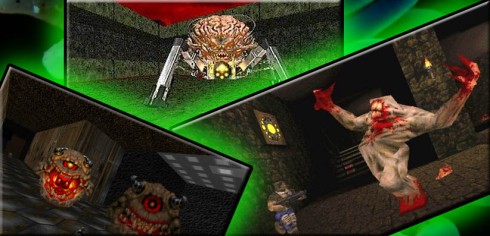






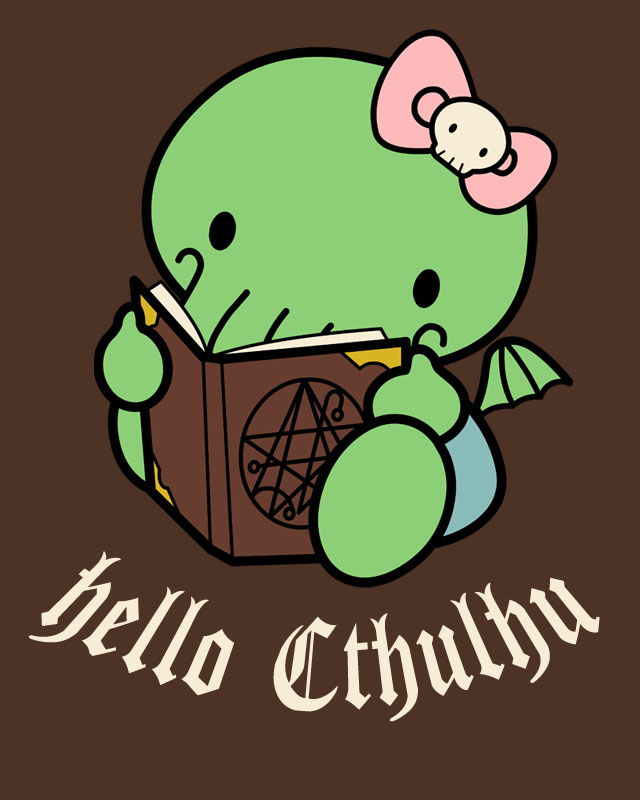

 As a result, we are scattered far and wide, and it is physically harder for us to get together for our Lovecraft gaming fix. Technology is just now able to solve this problem, and I’m happy about it. Now old friends who live hundreds, even thousands of miles away, will be able to get together to play games.
As a result, we are scattered far and wide, and it is physically harder for us to get together for our Lovecraft gaming fix. Technology is just now able to solve this problem, and I’m happy about it. Now old friends who live hundreds, even thousands of miles away, will be able to get together to play games.








 France has a strange relationship with fantasy, and an even stranger relationship with Lovecraft. Even though
France has a strange relationship with fantasy, and an even stranger relationship with Lovecraft. Even though 



 and then new French creations, books for Keepers as well as new scenarios ( from Tristan Lhomme, long-time writer of shorter scenarios for Casus Belli, who took the opportunity given him of writing longer stuff). Sans Detour has prospered, its long term bet of producing beautiful well laid-out supplements proving a great success. I don’t know how they do it, I don’t know what they’ve sacrificed to become such a success while churning out beautiful well-produced books at reasonable prices, but they seem to thrive. At the same time,
and then new French creations, books for Keepers as well as new scenarios ( from Tristan Lhomme, long-time writer of shorter scenarios for Casus Belli, who took the opportunity given him of writing longer stuff). Sans Detour has prospered, its long term bet of producing beautiful well laid-out supplements proving a great success. I don’t know how they do it, I don’t know what they’ve sacrificed to become such a success while churning out beautiful well-produced books at reasonable prices, but they seem to thrive. At the same time, 
 Chaosium’s decision to do a «quick and dirty» has produced some gems (Oscar Rios’s haunting
Chaosium’s decision to do a «quick and dirty» has produced some gems (Oscar Rios’s haunting  Christian: I find that each line reflects in a way the world-view of its seminal authors. Herber and Di Tillio and Ross and Willis crafted the Chaosium line of scenarios: whether they are globe spanning adventures or backwards Lovecraft Country one-shots, they have a certain feel, in which the humanity of the PCs and NPCs, the care for the fate of individuals, are paramount. The
Christian: I find that each line reflects in a way the world-view of its seminal authors. Herber and Di Tillio and Ross and Willis crafted the Chaosium line of scenarios: whether they are globe spanning adventures or backwards Lovecraft Country one-shots, they have a certain feel, in which the humanity of the PCs and NPCs, the care for the fate of individuals, are paramount. The 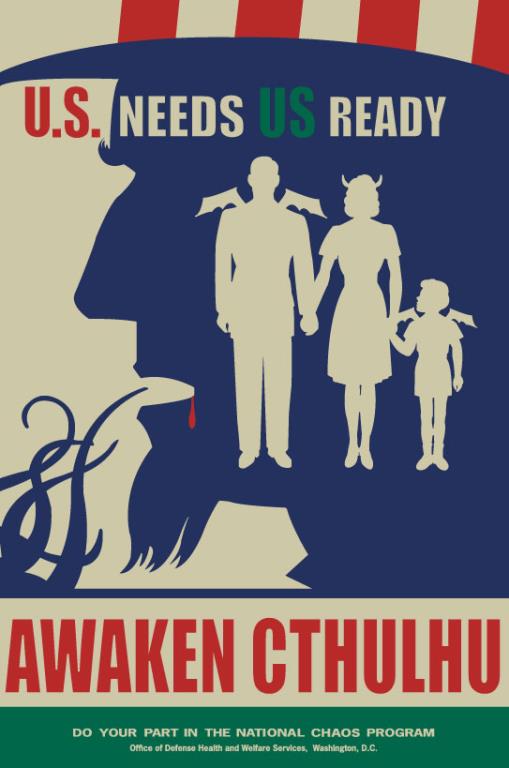
 I was thrilled when Greg Stoltze and Dennis Detwiller started tu use a Pledge system to get new work in print, and now Kickstarter seems like a very promising venture for the future, but I’m a bit wary of becoming too complacent about KS and having authors and companies compete for donors only to take ages to deliver the final product. I think it is very important to give pledgers a reasonable timing for «when will that f$$$****ing book/game come out?» and I find it is not always the case. KS is a contract, of sorts, and it’s very important not to mess with pledger’s expectations.
I was thrilled when Greg Stoltze and Dennis Detwiller started tu use a Pledge system to get new work in print, and now Kickstarter seems like a very promising venture for the future, but I’m a bit wary of becoming too complacent about KS and having authors and companies compete for donors only to take ages to deliver the final product. I think it is very important to give pledgers a reasonable timing for «when will that f$$$****ing book/game come out?» and I find it is not always the case. KS is a contract, of sorts, and it’s very important not to mess with pledger’s expectations. Christian: I think what is missing at the moment is an incentive to draw more new players into the game. Obviously a Del Toro “
Christian: I think what is missing at the moment is an incentive to draw more new players into the game. Obviously a Del Toro “ Christian: I hope to see more new companies, I hope to see work from fantastic authors like Oscar Rios ans David Conyers and Kevin Ross and others actually getting into print. I mean, I’m not going to live eternally, and I won’t find much use if my heirs slip a copy of Kevin Ross’s Colonial era supplements in my coffin ( maybe the ghouls will…). I hope that as we grow older, I can still play with my friends, even if we drift apart geographically, by using the Internet. My current group has four players around a table near Paris, and a friend who has moved near Brussels and plays through Skype. I tend to forget he’s not there physically. And I guess this is a great way to connect Keepers and players as new programs help us to transfer the rpg experience through the Internet.
Christian: I hope to see more new companies, I hope to see work from fantastic authors like Oscar Rios ans David Conyers and Kevin Ross and others actually getting into print. I mean, I’m not going to live eternally, and I won’t find much use if my heirs slip a copy of Kevin Ross’s Colonial era supplements in my coffin ( maybe the ghouls will…). I hope that as we grow older, I can still play with my friends, even if we drift apart geographically, by using the Internet. My current group has four players around a table near Paris, and a friend who has moved near Brussels and plays through Skype. I tend to forget he’s not there physically. And I guess this is a great way to connect Keepers and players as new programs help us to transfer the rpg experience through the Internet.

 Mike Mason is the co-writer of Call of Cthulhu 7th Edition Rulebook and co-writer of the (also upcoming) Call of Cthulhu Investigator’s Handbook. Previously, Mike was the developer, editor and co-author of Black Industries (now FFG) 40K RPG
Mike Mason is the co-writer of Call of Cthulhu 7th Edition Rulebook and co-writer of the (also upcoming) Call of Cthulhu Investigator’s Handbook. Previously, Mike was the developer, editor and co-author of Black Industries (now FFG) 40K RPG  Mike has also worked for Games Workshop, managing the annual Games Day & Golden Demon show, running numerous 40K and Warhammer tournaments, as well as setting up a UK gaming community programme to support gaming clubs in schools, colleges and libraries. In his spare time he also set up and ran the UK’s Kult of Keepers; a cadre of writers and keepers who organised and ran numerous Call of Cthulhu games across UK and German RPG conventions.
Mike has also worked for Games Workshop, managing the annual Games Day & Golden Demon show, running numerous 40K and Warhammer tournaments, as well as setting up a UK gaming community programme to support gaming clubs in schools, colleges and libraries. In his spare time he also set up and ran the UK’s Kult of Keepers; a cadre of writers and keepers who organised and ran numerous Call of Cthulhu games across UK and German RPG conventions.
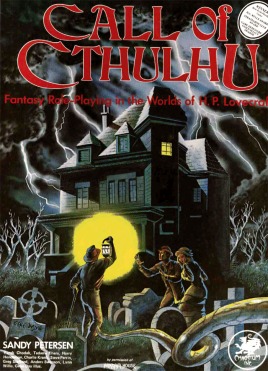


 The key challenge has always been ensuring games are accessible to new players. Some people have the ‘RPG gene’, some don’t. Just like some have the ‘bird watching gene’ and some don’t. We have to ensure that those with the gaming gene have the opportunity to play a game and discover for themselves that they like it. Making sure RPGs are available and accessible is important. That’s often why gaming clubs are important as they provide a way-in for new and returning gamers. The Internet is obviously a big help too – as are podcasts like
The key challenge has always been ensuring games are accessible to new players. Some people have the ‘RPG gene’, some don’t. Just like some have the ‘bird watching gene’ and some don’t. We have to ensure that those with the gaming gene have the opportunity to play a game and discover for themselves that they like it. Making sure RPGs are available and accessible is important. That’s often why gaming clubs are important as they provide a way-in for new and returning gamers. The Internet is obviously a big help too – as are podcasts like  Mike: One of the things I was pleased to write was the chapter on investigator organisation in the 7th edition Investigator’s Handbook. We have a limited number of these existing, Delta Green being the most famous. In the chapter I wanted to open up the possibilities for every group to feel that it was ok for them to create their own organisation, or at least give them a range of ideas that they could build on. Thus, in the chapter, we have all manner of organisations that the investigators could be a part of, including a travelling circus, the R&D wing of a multi-national business, an esoteric order, a collection of ex-military comrades, and many others. I think this opens out the possibilities and I’d love to see what different gaming groups do with these ideas. In time, I could envision some cool campaigns to stem from these ideas, and I’d love to see more published materials along these lines.
Mike: One of the things I was pleased to write was the chapter on investigator organisation in the 7th edition Investigator’s Handbook. We have a limited number of these existing, Delta Green being the most famous. In the chapter I wanted to open up the possibilities for every group to feel that it was ok for them to create their own organisation, or at least give them a range of ideas that they could build on. Thus, in the chapter, we have all manner of organisations that the investigators could be a part of, including a travelling circus, the R&D wing of a multi-national business, an esoteric order, a collection of ex-military comrades, and many others. I think this opens out the possibilities and I’d love to see what different gaming groups do with these ideas. In time, I could envision some cool campaigns to stem from these ideas, and I’d love to see more published materials along these lines.
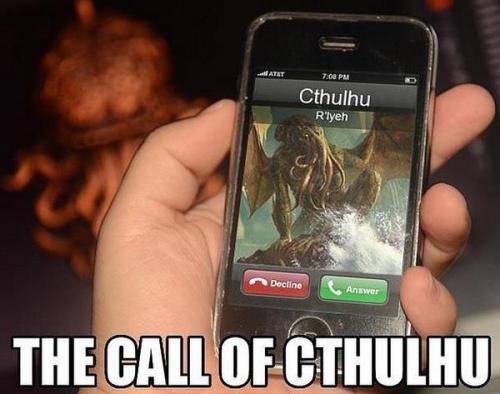 Mike: In five years time I imagine all the initial fuss over 7th edition will be long forgotten and people will just be continuing to play Call of Cthulhu. An explosion of cool settings, new scenarios and a couple of new big campaigns will be good. An investigator generator should hopefully be available for PC, Mac, iPad, iPhone and Android by then too (well, at least I hope so!).
Mike: In five years time I imagine all the initial fuss over 7th edition will be long forgotten and people will just be continuing to play Call of Cthulhu. An explosion of cool settings, new scenarios and a couple of new big campaigns will be good. An investigator generator should hopefully be available for PC, Mac, iPad, iPhone and Android by then too (well, at least I hope so!).
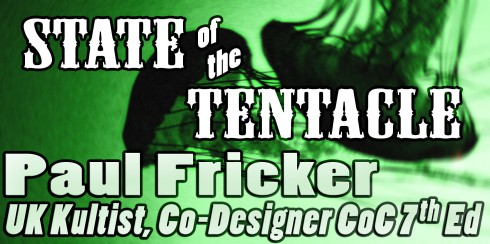
 Hot on the heels of our
Hot on the heels of our 
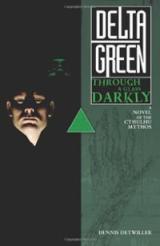
 Paul: Even back in the pre-internet-1980s there was a circulation of
Paul: Even back in the pre-internet-1980s there was a circulation of 
